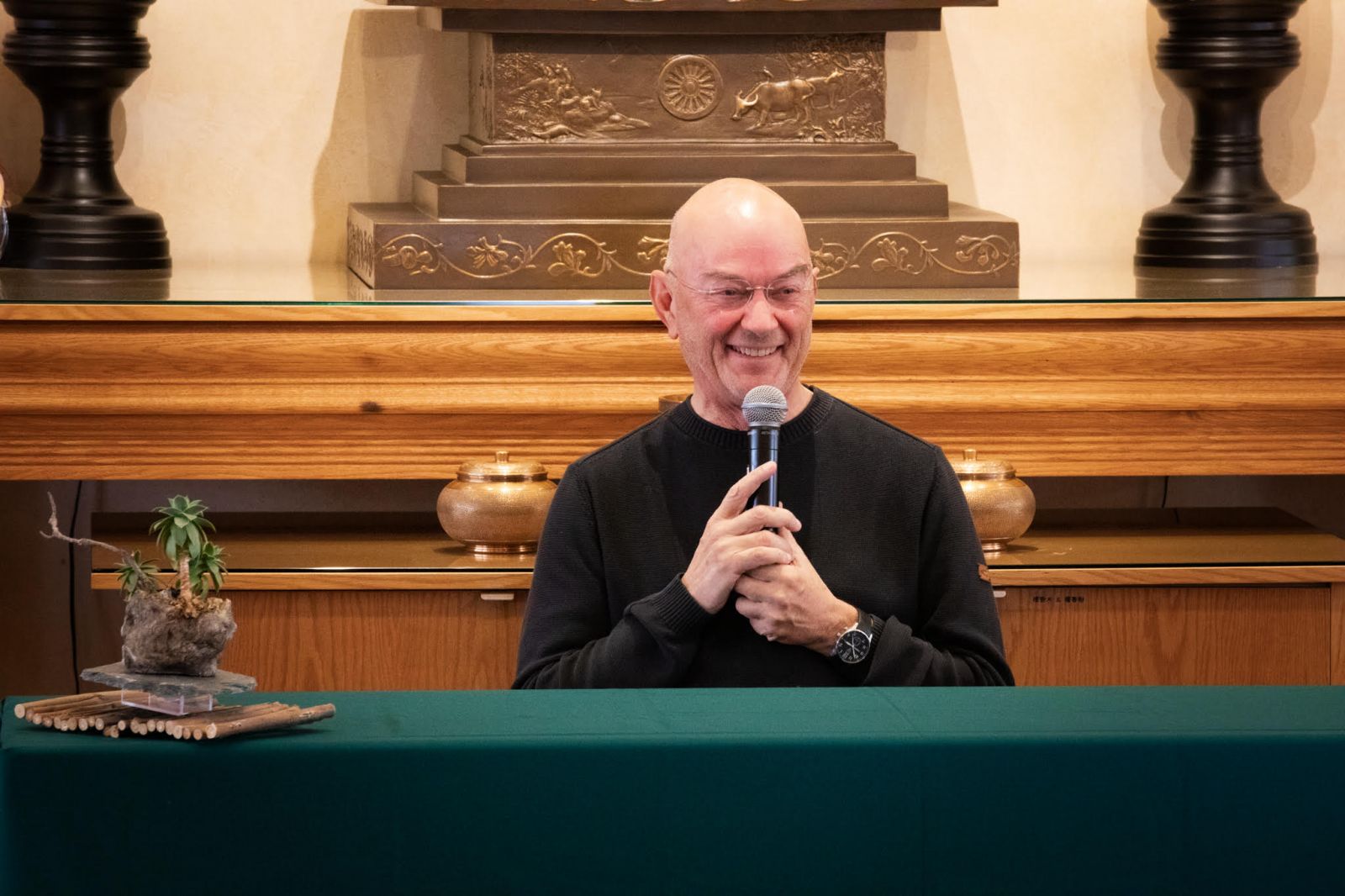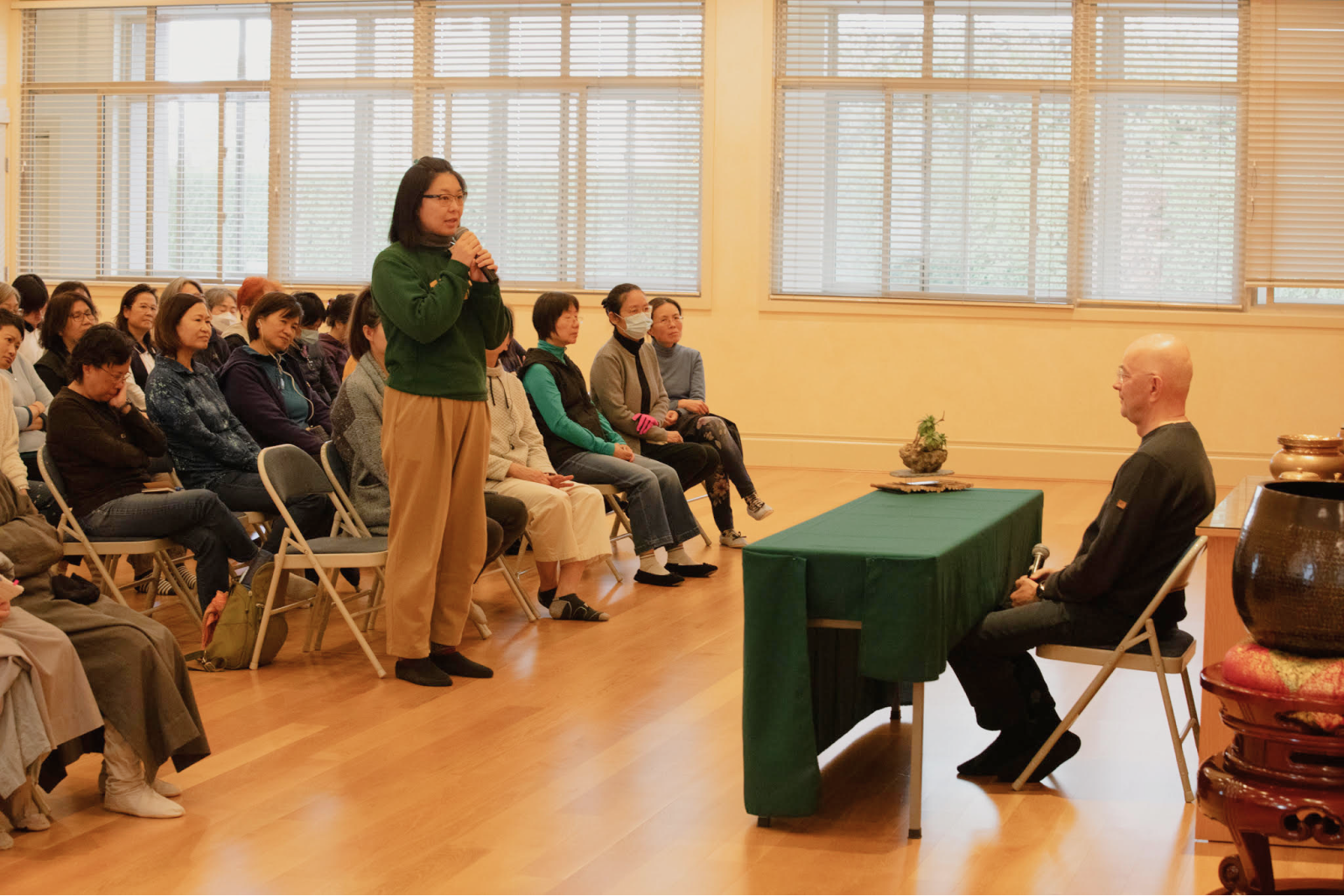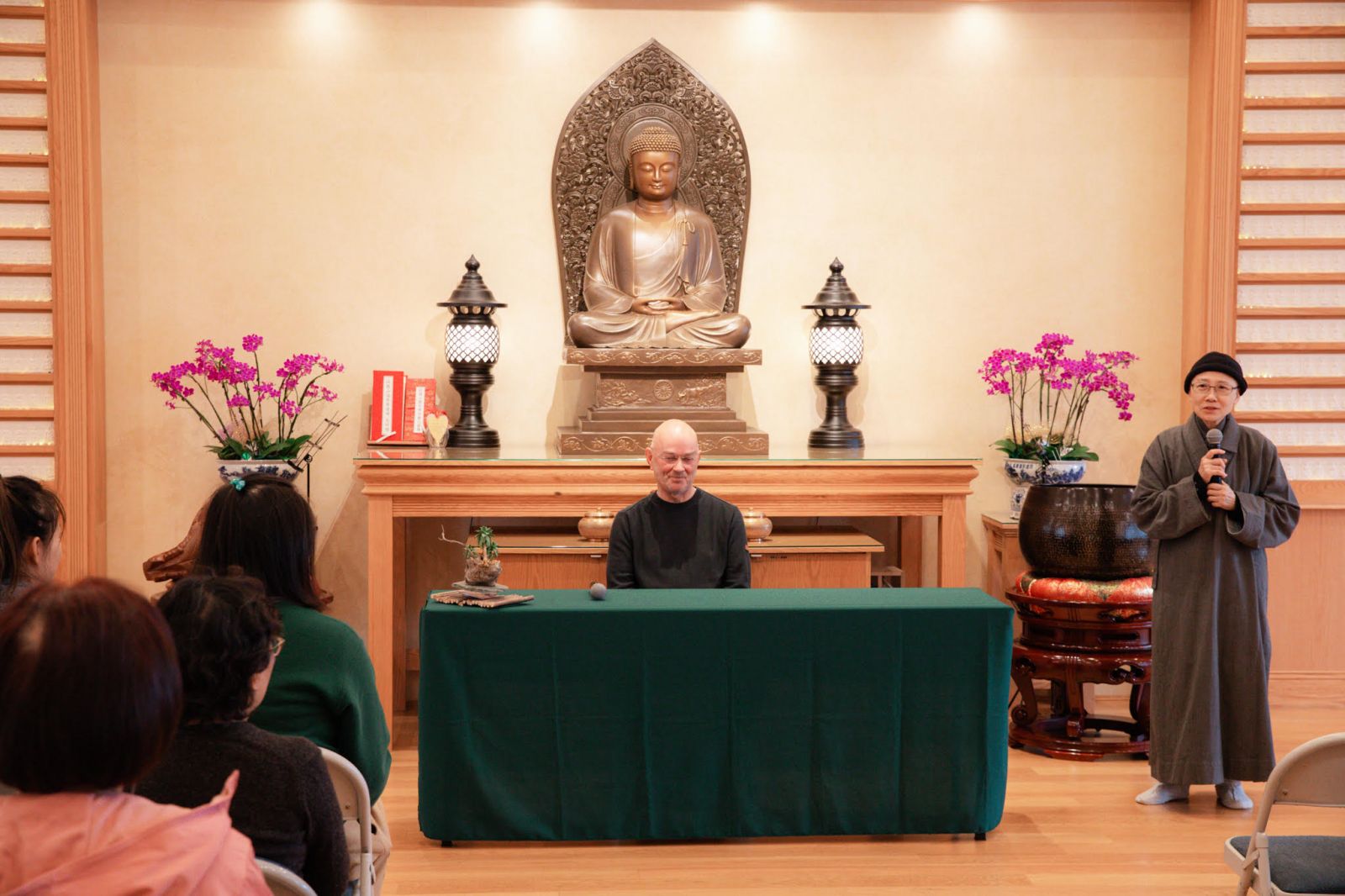DDM Global News
Zarko Andricevic's Talk on Chan and Minimal Living
On November 4th, 2023, Dharma Drum Vancouver Centre invited Zarko Andricevic, one of Master Sheng Yen's Western Dharma heirs and the founder of Dharmaloka in Croatia, for a Dharma Talk on "Chan and Minimal Living". More than 70 listeners participated.
Zarko began with a look at the modern world and how it leads us to excess. Both our technological advances and our economic system promote consumption. Our phones serve as an escape from our loneliness, emptiness, and boredom. Paradoxically, using technology in this way promotes the very loneliness, emptiness, and boredom we are attempting to escape. Our economic system promotes the idea that the key to fulfilment is consumption. Whether it be more toys, a bigger house, more clothes, more technology, more money, or more experiences, we are continuously presented with a view that these things or experiences will fulfill us and make us secure. The result is a never-ending drive for more.
Zarko pointed out that, as a result of this, the quality of our lives is lowered. The drive for more, the need to care for what we have acquired, and the constant need to be in electronic communication leads to an acceleration in our lives. We feel there is never enough time. This leads to internal tension. This frenzied and tense activity leads to superficiality. Nothing is looked at in depth. Consequently, our minds become progressively more scattered. We also become alienated from ourselves, nature, and those closest to us.
Other than the technology, none of this is new, though arguably the effects are magnified in the modern world. As Zarko said in his talk, the Buddha spoke to these very issues. The Buddha advises that there are three priorities on the spiritual path: material comfort, mental wellbeing, and inner freedom. The overwhelming message given to us by modern society is that we need only concern ourselves material comfort. As a result, we accumulate, and our achievement of both mental wellbeing and inner freedom are hampered. This wrong understanding is a core issue.
 Zarko cautioned that minimalist living does not mean returning to some preindustrial way of life. It simply means putting order into the lives we have. We begin by differentiating wants and needs. The Buddha described four basic needs: food, clothing, housing, and medicine. Anything beyond that is a want. There are many things in the modern world that are useful and should not be set aside. Some examples are electricity, modern medicine, and modern communication systems. In the context of the modern world, these can be seen as legitimate needs, but we need to clearly see what a need is and what a want is.
Zarko cautioned that minimalist living does not mean returning to some preindustrial way of life. It simply means putting order into the lives we have. We begin by differentiating wants and needs. The Buddha described four basic needs: food, clothing, housing, and medicine. Anything beyond that is a want. There are many things in the modern world that are useful and should not be set aside. Some examples are electricity, modern medicine, and modern communication systems. In the context of the modern world, these can be seen as legitimate needs, but we need to clearly see what a need is and what a want is. The key to this process is nonattachment. We become attached to things, and they accumulate. Our physical world becomes cluttered. Our time becomes filled. We lose touch with the spaciousness of our world. As our physical world becomes cluttered, this affects our minds as well, and we lose touch with the spaciousness of our true nature. Thus, simplifying our world helps to discover spaciousness of our mind and simplify our minds.
Zarko went on to say that material abundance and easy access also leads to a lack of appreciation. An example he used is a full refrigerator. When the refrigerator is full, nothing appeals, but if one is hungry, a single apple seems like a feast if there is nothing else. This clutter of over-abundance leads to a lack of gratitude and appreciation.
 The key that is missing for most, as Zarko pointed out, is meditative practice. Cultivating clarity through practice helps us navigate the world of our needs and desires. We discover that our environment affects our practice, and our practice affects our relationship with our environment. Therefore, the quest for a simplified life is a deep dive into our goal of liberation. As our practice grows, so does our desire for less. Our understanding of what our true needs are as opposed to the wants of our ego becomes clearer. We begin to see that the promise of salvation in accumulation is not feasible in this world of impermanence. Adopting a minimalist lifestyle prom us to release attachments to things we may not be aware of initially. We spend less time and energy on superfluous possessions, allowing ourselves to spend more time wisely to nurture our mental wellbeing and inner freedom. Through this ongoing practice, we also reduce our attachment to the self.
The key that is missing for most, as Zarko pointed out, is meditative practice. Cultivating clarity through practice helps us navigate the world of our needs and desires. We discover that our environment affects our practice, and our practice affects our relationship with our environment. Therefore, the quest for a simplified life is a deep dive into our goal of liberation. As our practice grows, so does our desire for less. Our understanding of what our true needs are as opposed to the wants of our ego becomes clearer. We begin to see that the promise of salvation in accumulation is not feasible in this world of impermanence. Adopting a minimalist lifestyle prom us to release attachments to things we may not be aware of initially. We spend less time and energy on superfluous possessions, allowing ourselves to spend more time wisely to nurture our mental wellbeing and inner freedom. Through this ongoing practice, we also reduce our attachment to the self.Zarko showed us that leading a simple life is a key to liberation. Minimalism done mindfully and in the context of practice becomes practice. Clarity and simplicity in our material world promotes the same in our minds and hearts as well as in our relationships. As this simplicity grows, our appreciation of the beauty of the present moment grows as well, and we come to see that this simple life is Chan.
Written by Tom Kaczmarski
Photo: Dharma Drum Vancouver Centre
